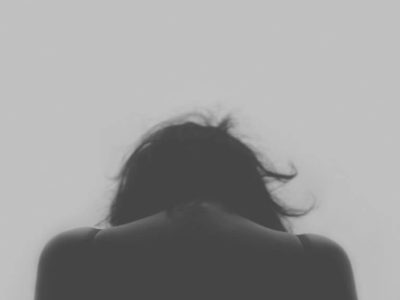I’ve always been a really happy person. Like, the kind of person you sorta want to punch in the face because she sings Disney songs 24/7 and uses fruit-scented pens (no lie, go to the dollar store, they’re hella cheap). So it’s no surprise I felt like my world crashed down when depression hit me like a semi-truck charging full speed into my life.
The feeling came out of nowhere and took several frustrating weeks to diagnose.
I’ll admit I had way too much on my plate at the time—a job, four classes, an internship, leadership roles in extracurricular activities, several weekly meetings, etc. The roles I held combined with physical illness and anxiety became the perfect brew for depression’s storm. As a junior, I’m plenty familiar with the stresses that come with being in college, but this grew into something I’d never faced before.
The depression hit hard when I noticed I woke up exhausted after a full night’s sleep. My mood plateaued at empty. I experienced long periods of sadness followed by short bursts of excitement and joy.
One day, I broke down at work without reason in the middle of taking an order and got sent home. I felt so ashamed of myself. Everyone asked “Are you okay?” and “What’s wrong?” but nothing makes you want to cry more than not knowing what to respond. My friends and family began to worry.
My roommates, who watched the chaos from the front row, advised me to slow down. They urged me to take time off work and stop attending club meetings in order to get some rest. My parents were concerned about my grades and my health. My boyfriend begged me to see a counselor. My loved ones could see the toll it took on my health, but while they reached out in love and concern, I felt like they were asking me to squeeze more into my schedule. As a result, I shrugged their advice away.
For months, I woke up with nausea and an excruciatingly immense amount of anxiety in my gut preventing me from digesting anything but Gatorade. Every time I looked in the mirror, I didn’t recognize the person looking back at me. I began to lose interest in my hobbies. And as a naturally unaggressive person, I began picking arguments with anyone and everyone who came within five feet of me.
The numbness became paralyzing. I kept thinking, hoping, tomorrow would be a new day and I’d wake up better. I hesitated to tell people about what was going on in my head and with my body, but I finally decided I needed to tell my parents.
I called my advice-giving guru, my mother. I told her about the mood swings, the depression, the nausea and the stress. I cried, and we hurt together. Becoming so mentally unstable made me feel like I held no control over my life. How could this happen to me? I’m the kind of person that color codes every second of the day with hourly planners. I mentored younger girls. My moments of weakness didn’t seem to make any sense.
Forty-four percent of college students in the U.S. report experiencing symptoms related to depression, but only a quarter seek help. Many students never get help dealing with their depression because they’re unaware of the symptoms.
The mental and physiological symptoms my body showed should’ve been a red flag signaling depression. The effects became a heavy weight on my shoulders and nobody knew. I took a long time to admit I desired a mental-health leave from work and needed to reach out for help. I took an even longer time to let my boyfriend successfully convince me to give counseling a shot. Deep down, I believed my reasons for seeking help weren’t valid.
Nothing improved immediately. Sometimes I find myself in similar mental and physical struggles. The experience showed me a lot of issues stemmed from piling way too much on my plate.
I was the “yes” girl—the girl who tried to pick up every shift, join every committee and never miss a hang out. But at the end of each day, I wasn’t taking care of myself. Getting incredibly sick, mentally and physically, made me finally realize that stopping to smell the roses makes a positive difference on your wellbeing. After visiting my university’s counseling center, I now see the worth in carefully noting how my body responds to stress.
At first, something stopped me from asking for help. I feared I was alone and nobody would understand. But I’m not alone and neither are you. Whether it’s major depression, episodic depression, anxiety, an eating disorder or any other mental illness, don’t let yourself go at this alone because a cry for help will never return an empty response. If I’ve taken away one thing from my sucky experience with depression, it’s that I do have control of my situation and I will not let myself become a victim to my thoughts any longer.



















